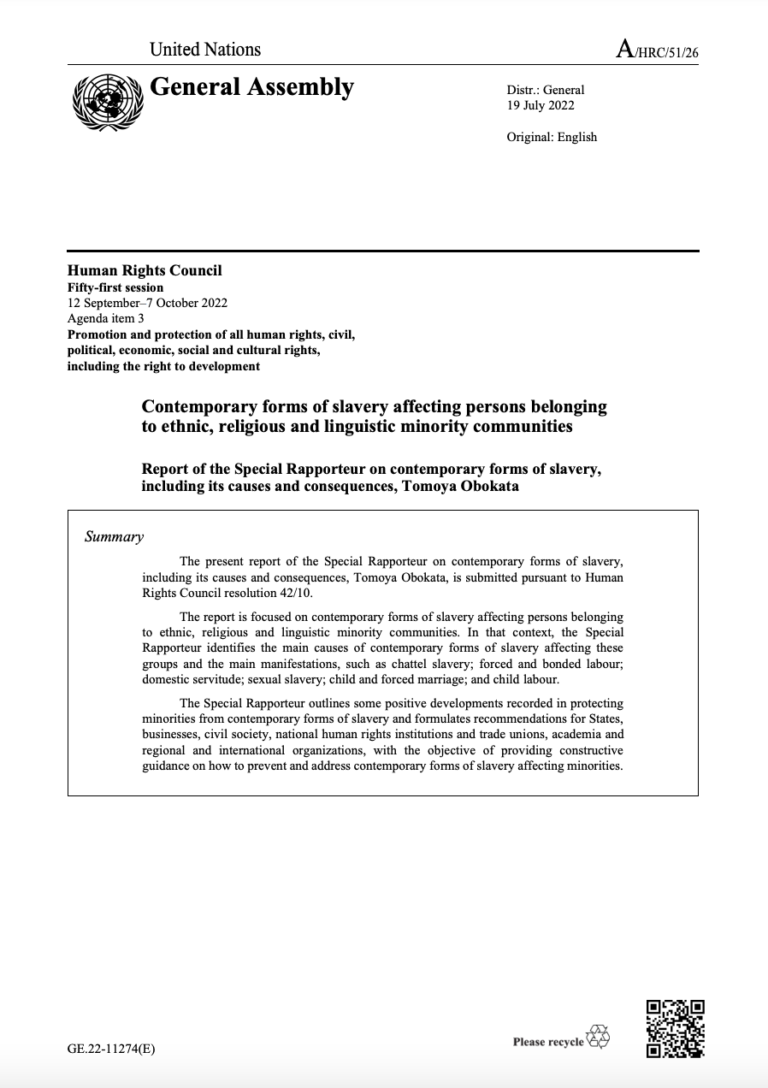The present report of the Special Rapporteur on contemporary forms of slavery, including its causes and consequences, Tomoya Obokata, is submitted pursuant to Human Rights Council resolution 42/10.
The report is focused on contemporary forms of slavery affecting persons belonging to ethnic, religious and linguistic minority communities. In that context, the Special Rapporteur identifies the main causes of contemporary forms of slavery affecting these groups and the main manifestations, such as chattel slavery; forced and bonded labour; domestic servitude; sexual slavery; child and forced marriage; and child labour.
The Special Rapporteur outlines some positive developments recorded in protecting minorities from contemporary forms of slavery and formulates recommendations for States, businesses, civil society, national human rights institutions and trade unions, academia and regional and international organizations, with the objective of providing constructive guidance on how to prevent and address contemporary forms of slavery affecting minorities.

